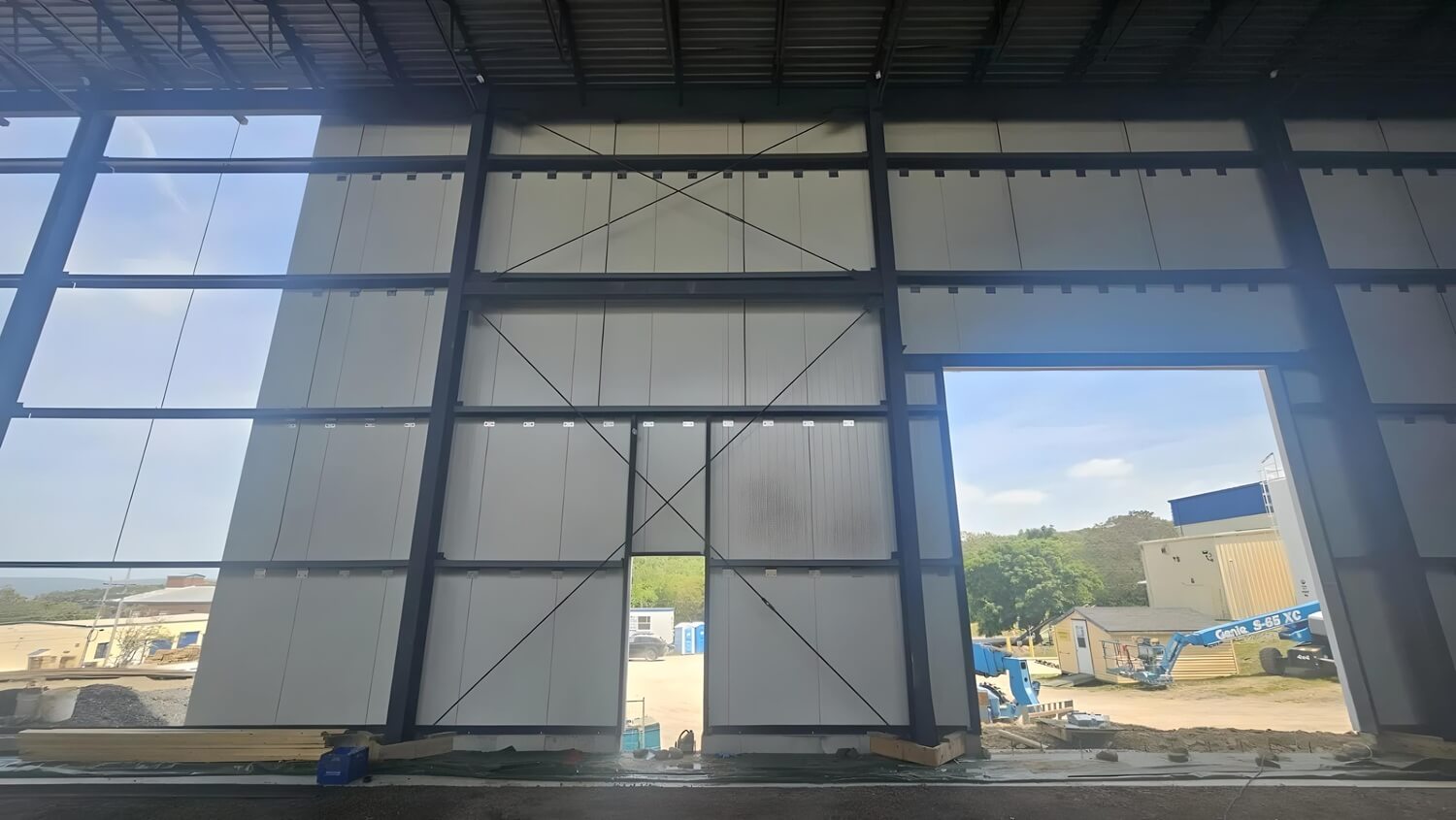While insulated wall panels are one of the most innovative building materials available today, their quality and overall performance will differ. This variation in quality depends largely upon the type of core material that the wall panels are made with.
Since the three main core materials are expanded polystyrene (EPS), polyurethane (PUR), and mineral wool, this guide will break down their advantages and disadvantages, so you can choose the right type of insulated wall panels for your needs.
We’ll also highlight some of the best options on the market today, including ISOWALL Insulated Wall Panels, which contain an EPS core, and ROCKWALL Fire-Rated and Insulated Panels, which have a unique Conrock mineral fibre core.
Advantages of Each Type of Wall Panel Core Material
To make things easy, let’s take a look at each of the three main types of core materials, breaking down their advantages and drawbacks:
Expanded Polystyrene (EPS)
Expanded polystyrene, or EPS, is a lightweight, rigid foam material made of small beads fused together. This unique structure allows EPS to offer outstanding thermal insulation, which is why it is a core material used in wall panels, with high R-values and lasting thermal performance.
One of the main advantages of using EPS as a core material is the fact that it does not lose its insulating performance over time, making the wall panels that contain it a good long-term investment.
The closed-cell structure of the settled foam also gives the finished panel a lasting resistance to moisture damage, which can reduce the formation and spread of mould. Plus, it is lightweight yet rigid enough to hold its structural integrity, making it easier to handle and install.
So, not only do the panels offer high thermal performance, but they are also practical and lasting options for a wide range of commercial and industrial applications.
Polyurethane (PUR)
Polyurethane, or PUR, is a type of high-density foam that also offers good insulating properties. Its main advantage is that it is relatively thin, especially compared to other insulating core materials used in wall panels. It’s also one of the more inexpensive core materials, so PUR is more cost-effective for manufacturers.
While the thermal performance is excellent, especially given the relatively thin profile, PUR tends to suffer from thermal drift over time, which means the R-value or thermal performance declines as the material ages.
Plus, PUR is highly flammable, which means it is far more susceptible to combustion than the alternatives. Even if it offers great thermal performance following installation, it is not always the most practical option for structures where fire safety is a significant concern.
Mineral Wool
Mineral wool is a type of mineral fiber insulation that is usually made from basalt, slag, or a combination of materials.
Its main advantage is that it offers lasting fire resistance, as the fibres are non-combustible and capable of withstanding intense and direct exposure to flames and high temperatures. An added bonus is that mineral wool also helps to absorb sound, making it a practical option for noisy environments, like factories and warehouses.
One downside of wall panels containing mineral wool cores is that they tend to be much heavier than the two alternatives discussed above.
A slight alternative to mineral wool that can help improve its overall quality is rockwool. This denser version is typically made from volcanic or basalt rock fibres spun tightly together. While rockwool panels can still be relatively heavy, they offer an even higher degree of thermal performance and fire resistance than basic mineral wool panels.
Choose the Best Insulated Wall Panels
ISOWALL Insulated Wall Panels contain a high-quality, rigid EPS core that is permanently bonded to steel facings. This allows them to deliver the ideal balance between lasting thermal performance and structural strength.
With no gaps for thermal bridging, they offer an R-value of 4.1 per inch. Thanks to their unique tongue and groove fit and lightweight design, they are also incredibly easy to install.
For those needing reliable fire resistance, ROCKWALL Fire-Rated and Insulated Panels contain a unique rockwool core that offers superior fire resistance. With fire resistance ratings ranging from 1, 2, or 3 hours, you can also choose the panels that match your needs. With their impressive thermal and acoustic performance, they can act as an all-in-one panel for a wide range of applications.
To request samples and learn more about ISOWALL and ROCKWALL Panels, click the link below:
